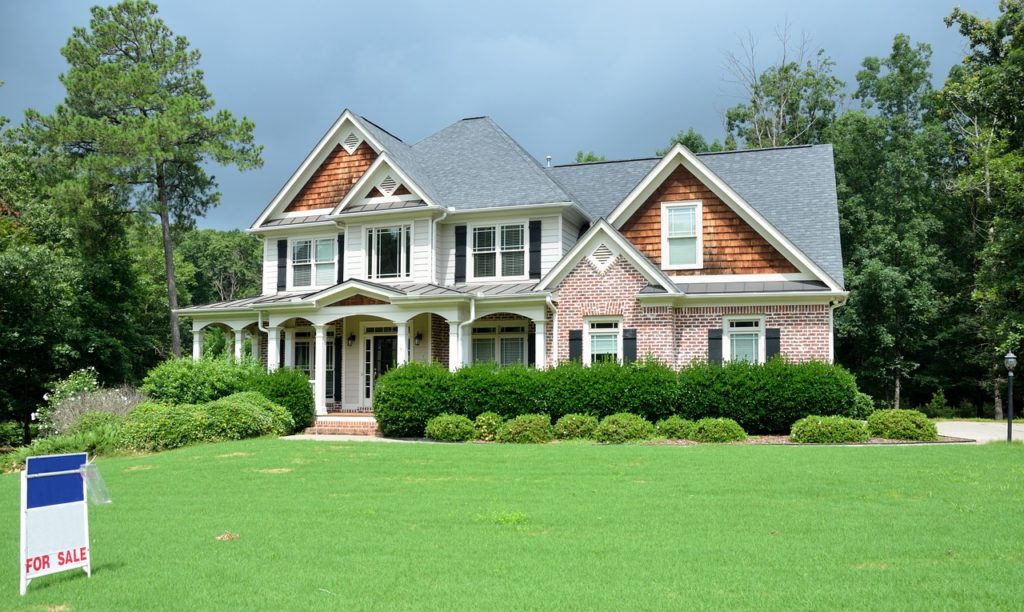If you’re interested in moving to New Jersey or investing in the state’s real estate market, the cost of living in New Jersey is one of the key things you’ll have to consider.
The state of New Jersey sits on the northeastern edge of the United States and its southern border is next to the Atlantic Ocean. The state has an estimated population of 8.92 million people and is ranked 37th across the nation – with a population growth rate of 0.41%.
New Jersey is home to one of the United States’ best colleges, Princeton University and several others including Rutgers, Stevens Institute of Technology, New Jersey Institute of Technology and The College of New Jersey. Perhaps these schools are part of the key reasons the state has more engineers and scientists per square mile than any other area across the world.
What’s a Cost of Living Index?
The cost of living index is the estimated amount of money that indicates the average costs of the key necessities needed for a family or an individual to live in a particular area. Among several others, the index often takes into account the prices of housing, food, transportation, healthcare, taxes, the economy, goods and services, and the income and salaries of residents as well as other key metrics.
This New Jersey cost of living index will simplify the process of comparing New Jersey to other states across the United States. This index can as well help you decide the best place to live in New Jersey depending on your income and lifestyle. However, this cost of living index should be used as an estimate only. Prices are never constant for too long – they are always fluctuating.
How The Cost of Living in New Jersey Index is Calculated
The state of New Jersey’s cost of living index is calculated based on a United States average of 100. A cost of living index that is higher than 100 indicates that New Jersey is more expensive than the national average. If the index is below 100, it means that New Jersey is more affordable or cheaper than the United States average cost of living.
New Jersey’s overall cost of living index is rated 120.4. This means that the average cost of living in New Jersey is extremely higher than the United States average.
The key metrics that weighs into the cost of living index include:
- Housing (142.4%)
- Transportation (127.7%)
- Utilities (109.2%)
- Miscellaneous (108.7%)
- Grocery (105.8%)
- Health (88.4%)
These metrics indicate that housing, transportation, utilities, and grocery make up the largest parts of the overall New Jersey cost of living index.
Real Estate
New Jersey is often rated as one of the most expensive states to live in the United States. The state is home to Somerset County and Hunterdon County, two of America’s richest counties. Interestingly, these two counties aren’t the only expensive places in New Jersey.
Currently, the median home value in New Jersey is $335,607. However, some cities across the state boast of higher home values. Jersey City has a $448,778 median home value, while Montclair exceeds that with an $803,973 median home value.

The home values in the state have risen by 1.5% over the past year and they are expected to rise by 0.4% within the next year. The state’s median list price per square foot is $193. New Jersey’s median price of homes currently listed is $340,000, though the median price of homes that sold is $294,800. Also, if you’re only interested in renting, New Jersey’s median rent price is $1,975.
In the next few years, foreclosure will be one of the key factors that will affect the value of homes in New Jersey. Currently, 2.3 homes are foreclosed (per 10,000) in New Jersey every year. This is higher than the United States average of 1.2.
In addition, there are more renters than homeowners in New Jersey’s four largest cities. As such, the costs of renting a home in New Jersey are notably above average. The median cost of renting a studio apartment in New Jersey is $1,084 per month. The amount is $257 higher than the United States average of $827. A one-bedroom apartment in New Jersey goes for a median rent price of $1,242 compared to the national average of $947.
Healthcare
New Jersey residents contribute significantly higher than the average $1,415 United States single coverage healthcare, according to a report from the Agency for Healthcare Research and Quality. At private companies in New Jersey, the average annual employee healthcare contribution is $1,595 – an amount that places New Jersey in the upper ranks of the nation’s healthcare contribution.
In addition, the median healthcare price in a city like Trenton is 22% higher than the national average.
Utilities
According to the U.S. Energy Information Administration (EIA), the average monthly energy bill In New Jersey is $102.38. This means that the average monthly energy bill in New Jersey is $9 less expensive than the national average of $111.67.
However, in some of the big cities across the state, the average cost of energy bills are higher. In Newark, the average monthly utility bill for a 915 square-foot is $233.33. In Jersey City, the same square-foot goes for $178.95. While in Trenton, the average cost of an energy bill is $136.90.
Groceries
The cost of groceries in New Jersey is generally higher than the United States average. In cities like Jersey City, residents spend up to $352.22 to get a month’s worth of food. While in Newark, residents spend up to $310 per month on food. Overall, you may spend more or less or on food depending on the type of food you like and where you like to dine.

Transportation
In New Jersey, many of the residents commute via public transportation. Big cities like Newark, Jersey City, and Hoboken has some of the largest numbers of public transportation users across the United States. Currently, the average commute time in New Jersey is 31.5 minutes – five minutes longer than the national average commute time of 26.4 minutes.
If you intend to ride in your car, the average price of a gallon of gas in New Jersey is $2.92 which is slightly higher than the national average of $2.90. New Jersey is also ranked 20th across the United States with an average annual premium of $1,520. Transportation is one of the key metrics in the cost of living in New Jersey.
New Jersey Tax Rates
Tax rates in New Jersey are rated among the highest across the United States. Currently, the top tax rate in the state’s progressive state tax system is 8.97%. New Jersey property taxes are the highest across the United States. New Jersey has an average effective property tax rate of 2.40%. This is notably above the national average of 1.19%.
Buying a Home in New Jersey
If you’re interested in buying a home in New Jersey, the beautiful city is one of the most expensive residential home markets across the United States. Without the help of a real estate expert, buying a home in New Jersey could turn out to be a lengthy and complex process. I can help you navigate through the complex process of buying a home in New Jersey and make it easier than you can ever imagine.
As a result of the high cost of buying a home in New Jersey, most buyers often need a mortgage. Buyers are often required to make a down payment of 15 -20 % of the selling price and there’s also the closing costs. If you’re a homeowner in your previous state, you should consider completing the sale of that home before relocating. You can use this cost of living in New Jersey data to find out if the state is the best place for you.
 By submitting information, I am providing my express written consent to be contacted by representatives of this website through a live agent, artificial or prerecorded voice, and automated SMS text at my residential or cellular number, dialed manually or by autodialer, by email, and mail.
By submitting information, I am providing my express written consent to be contacted by representatives of this website through a live agent, artificial or prerecorded voice, and automated SMS text at my residential or cellular number, dialed manually or by autodialer, by email, and mail.

